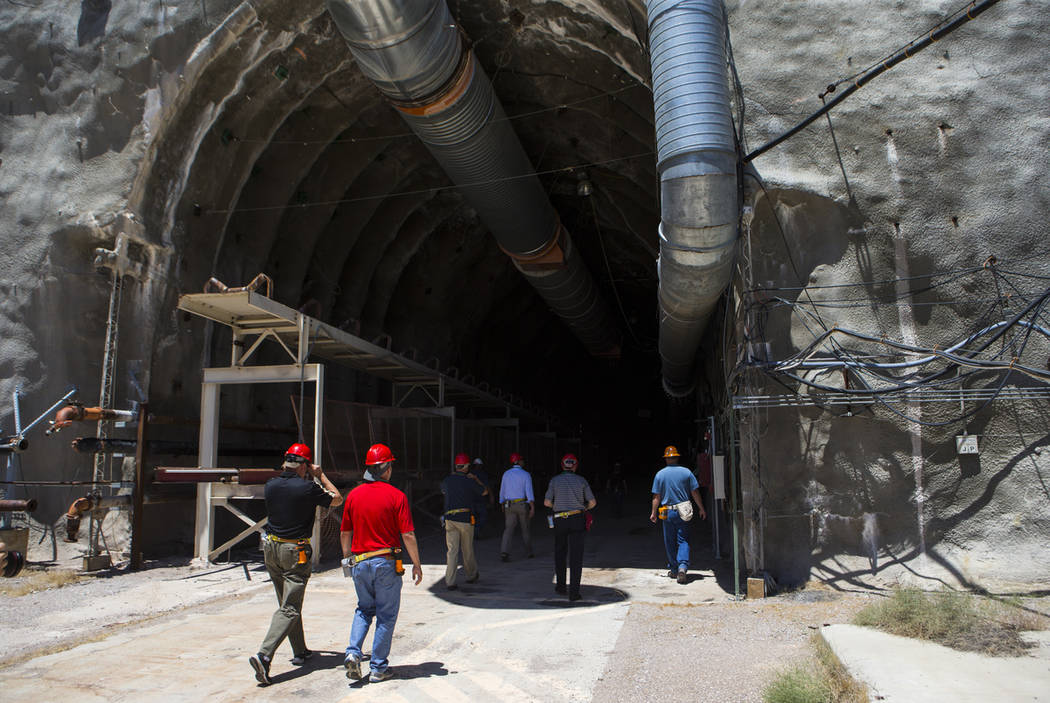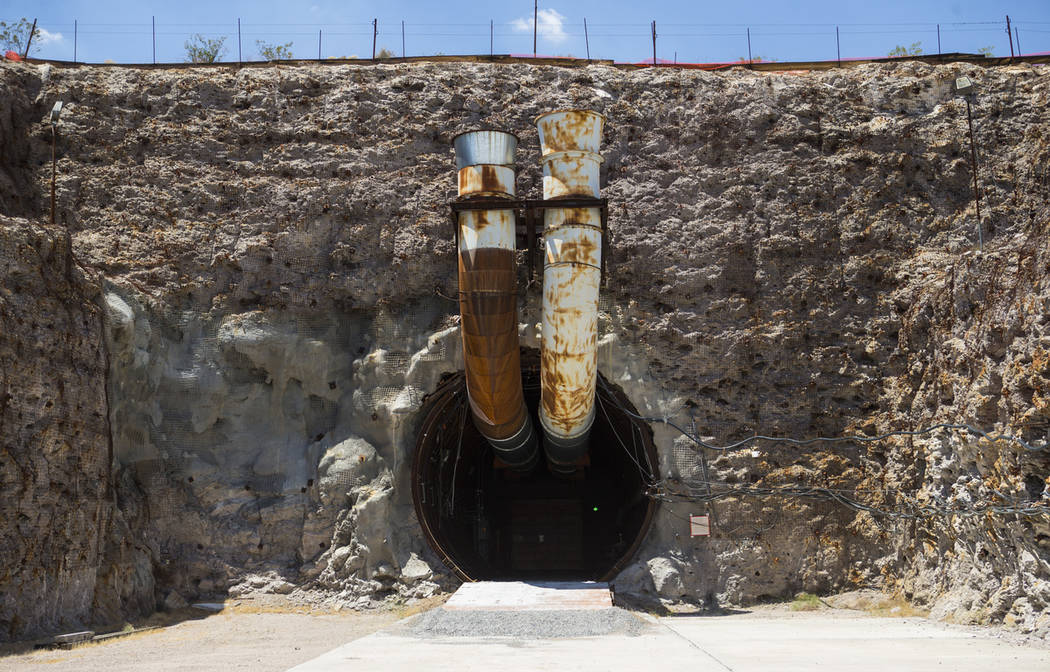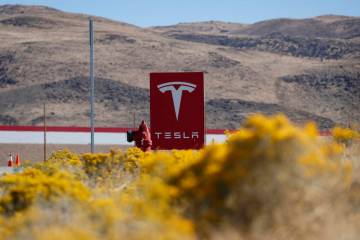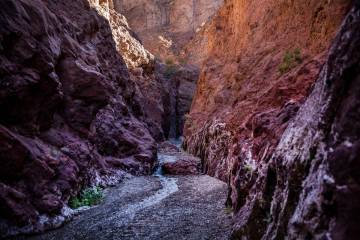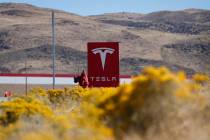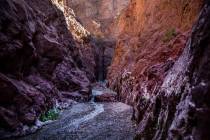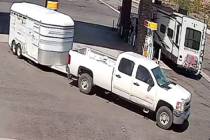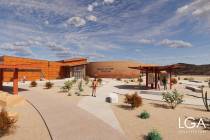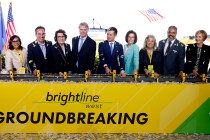‘Reset’ on nation’s nuclear waste policy includes Yucca Mountain
WASHINGTON — A panel of scientists are urging a “reset” of the nation’s stalled nuclear waste management system and recommendations to manage and store the material that include using Yucca Mountain as a potential repository.
The proposals were included in a 126-page report, “Reset of America’s Nuclear Waste Management,” that addresses the buildup of highly radioactive waste from commercial power plants and military programs stranded at 75 sites around the country.
Scientists involved with the report were on Capitol Hill on Wednesday to discuss a way forward, or a reset of current management and policy to address the lack of safe storage for the waste.
The report, released in January, includes development of a consensus-based siting process, but one that would still include Yucca Mountain as a candidate.
The inclusion of the site located 90 miles northwest of Las Vegas would continue the travesty of the 1987 decision by Congress that singled out “Yucca Mountain as the only site to be considered for development of a national nuclear waste repository,” said Steve Frishman, a technical consultant to the state of Nevada.
He noted that state, local and tribal leaders, as well as business groups and environmentalists in Nevada, are staunchly opposed to permanent waste storage in Nevada, and claim that the site is unsafe despite Department of Energy studies and recommendations.
Opposition to Yucca Mountain has led to an impasse on storing nuclear waste.
“The site for the proposed Yucca Mountain repository was formally selected in 2002,” the reported noted. “Today, the fate of that site is in political limbo.”
The report further noted that there is “no clear path forward” to manage nuclear waste produced by commercial power plants.
The report compiled by scientists at Stanford University and George Washington University recommends taking the management of nuclear waste storage away from the DOE and creating either a new single-purpose nuclear waste management organization, or a non-profit corporation owned by the nuclear utility industry to handle the waste.
The proposals would take congressional approval and new laws to transfer funds collected from nuclear power companies to build facilities to store the waste.
Many of the topics covered in the reset report were also covered, with differing emphasis, by the Blue Ribbon Commission on America’s Nuclear Future in 2012, Frishman said. The commission did not consider Yucca Mountain as a potential repository.
The report comes as Sen. Lamar Alexander, R-Tenn., plans a push in the Senate to resolve the three-decade impasse that has left nuclear waste piled up at generating plants across the country.
Alexander, chairman of the Senate Appropriations subcommittee on energy, had planned a bipartisan tour of Yucca Mountain on Friday, but was forced to postpone the bipartisan trip due to scheduling conflicts.
Energy Secretary Rick Perry and Nevada Sens. Catherine Cortez Masto and Jacky Rosen, both Democrats, were invited to travel with the delegation of six senators and DOE staffers to tour the tunnel bored into the geologic formation in Nye County.
Cortez Masto said she had planned to educate her colleagues on how the $19 billion that has been spent on the site with nothing to show for the money, and to emphasize the state’s objection to storing the nation’s stockpile of nuclear waste.
Only Nevada’s rural counties, including Nye County where the site is located, favor continuation of licensing hearings to determine if the location is safe for storage. The rural counties see development at Yucca Mountain as an economic boon that would provide tax revenue for schools and local governments.
Former Sen. Harry Reid, D-Nev., told the Review-Journal in an interview this month that Yucca Mountain would never be developed because of the astronomical cost to complete the facility. He suggested utility companies place the waste in dry casks and bury them on site.
Reid was instrumental in swaying President Barack Obama to withdraw funding that shelved the ongoing licensing hearings on DOE’s application to construct a repository at Yucca Mountain.
President Donald Trump has proposed restarting the licensing process in his past two budget proposals to Congress. The House also passed a law to streamline the procedure, but all attempts died in the Senate, which stripped out funding in spending bills and never took up the House bill.
If the licensing process restarts, Nevada has filed 218 “contentions,” or objections that would have to be settled before a construction permit is issued.
Experts testified before the House in 2016 that that process could take three to five years.
Meanwhile, two private groups have filed applications with the Nuclear Regulatory Commission for permits to build interim storage facilities in New Mexico and Texas.
Alexander said he favors developing interim storage sites while a strategy on permanent storage can be settled. He told his subcommittee last year that he views Yucca Mountain as part of the solution.
Contact Gary Martin at gmartin@reviewjournal.com or 202-662-7390. Follow @garymartindc on Twitter.



